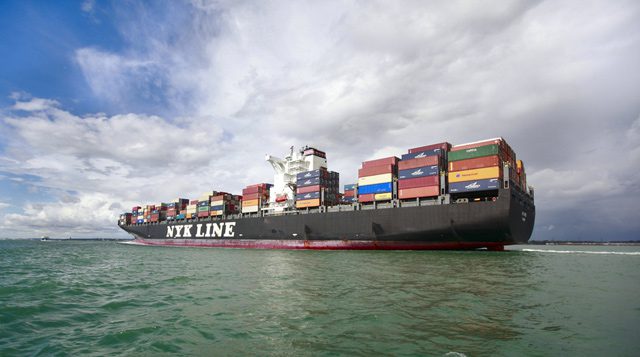Japanese Shipping Giant Warns of Potential Cargo Slowdown Amid US Tariff Concerns
By Yuka Obayashi
TOKYO,April 1 (Reuters) – Nippon Yusen NYK,teh leading shipping company in Japan,is voicing concerns over potential impacts from U.S. President Donald Trump’s tariffs. These tariffs could lead to increased prices for cars and everyday products, which might dampen consumer spending and disrupt cargo movement, according to President Takaya Soga.
Soga explained in a recent chat with Reuters that while consumers may not feel the immediate pinch of these tariffs directly, they will ultimately bear the costs.“The real worry is how this affects the flow of goods,” he noted.
Last week,Trump announced a hefty 25% tariff on imported vehicles—a decision likely to affect Japan’s export-heavy economy substantially. He also hinted at introducing reciprocal tariffs aimed at all trading partners soon.
“The economic repercussions could be significant,” Soga remarked. The actual effect on shipping and logistics firms will hinge on how cargo traffic evolves in response to these changes.Interestingly, Soga pointed out that there might be some silver linings amid this trade conflict. Drawing parallels with disruptions seen during the COVID-19 pandemic, he mentioned that even if cargo volumes drop due to tariffs causing procedural delays in logistics operations, it could tighten demand for ships and possibly increase freight rates.
Moreover, if china starts sourcing raw materials from countries other than the U.S., NYK might discover new business avenues as an inevitable result.
In December last year—just before Chinese New Year—there was a surge in consumer goods shipments driven by anticipation of U.S. tariffs; though, as those measures were enacted, material flows have remained relatively stable without notable shifts.
On another note,plans are underway for new docking fees at U.S. ports targeting vessels linked with Chinese-built or flagged ships—a move expected to pressure allies into similar actions or face consequences themselves. “The U.S. government is still evaluating this policy’s implementation,” Soga said when asked about future orders from China.
With ongoing tensions in the Middle East affecting maritime routes—particularly around yemen where Houthi attacks have caused disruptions—Soga anticipates continued avoidance of Red Sea passages for some time as ships opt for longer routes around Africa instead.
While congestion issues at the Panama canal have mostly been resolved now, NYK is advocating for reinstating Tier 1 priority status specifically for liquefied natural gas (LNG) tankers within canal operations.
As far as investments go regarding vessels tied to offshore wind energy projects are concerned? While developments within Japan may lag due to slower market growth than expected; international investments are set to advance more swiftly according to Soga’s insights.


Comments are closed, but trackbacks and pingbacks are open.